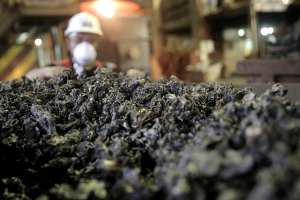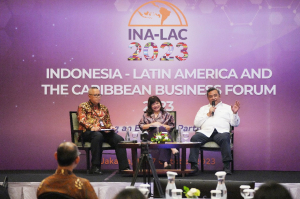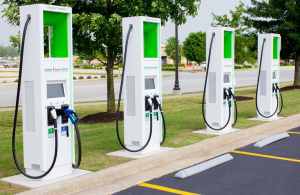IBC has signed agreements with CBL and LG to develop EVs battery.
Chief Executive Officer of PT Industri Baterai Indonesia Toto Nugroho said that the company needs high cost to finance the development of electric vehicle battery .
Therefore, in order to meet the company's needs of funds, the company cooperated with Ningbo Contemporary Brunp Lygend Co.Ltd (CBL) from China and LG Energy Solution from South Korea. Investment value for the project reaches up to US$ 15.9 billion or equals to IDR 225 trillion .
Nugroho said that the foreign partners have agreed to invest in electric vehicle ecosystem from upstream to downstream. On the upstream sector, Niko Kanter, CEO of PT Aneka Tambang (Antam) said that Antam has previously cooperated with CBL and LGES .
After a shareholder meeting on August 23, 2022, Antam signed a Conditional Shares Purchase Agreement to divest some portion of Antam's business and engage in coopration with CBL and LGES. "[Antam subsidiary] Sumber Daya Arindo has cooperation with CBL, and [another subsidiary] Nusa Karya Arindo has cooperation with LGES. In the CSPA, the company has agreed to divest 49% of their shares for CBL and LGES," Nugroho explained.
On January 16, 2023, Antam signed a CSPA and a shareholder agreement with CBL. However, the agreement still needs to be approved by Chinese Investment Board before October 2023.
On May 2023, Antam will meet with LGES because the South Korean company plans to change the structure of its consortium. "We set a target to sign all CSPA in 2023," Nugroho said.
Nugroho added that the agreement between Antam and the two foreign partners is critical because after the signing of agreement, the two foreign partners are also binding for downstream investment.
"We will do the detailed feasibility study and joint venture agreement signing for smelting, precursor, cathode, and recycling aspect in 2023," Nugroho said.
Production of electric vehicle battery
Nugroho said that the development of electric vehicle battery factories in Indonesia is not cheap and will take long time. Nugroho added that there are many phases that should be passed by the company from upstream to downstream industry.
"Actually, to built an electric vehicle industry is not fast and cheap, despite the fact that the battery is small, but we need several phase to produce the battery from mining to produce the battery," Nugroho said in a parliamentary hearing on April 12,2023.
Nugroho explained that the making of electric vehicle batteries started from the mining of raw materials, processing in smelter or refining facility, and producing battery cathode and precursor using the refined minerals, and then the production of battery cells.
"First, certainly we need mining. Second, process the mineral in a smelter, there are two smelter RKEF [Rotary Klin Electric Furnace] and HPAL [High Pressure Acid Leaching]," Nugroho said.
"The product is processed into battery chemical precursor, after that we produce the battery cell," Nugroho added.
After that, Nugroho continued , the batteries that have been used can be recycled. The company can extract minerals contained in the battery which can be made into new batteries.
"Used battery can be processed into fresh battery. So ,there is recycle, we can take the used battery , we can extract the mineral to make new battery," Nugroho concluded.
Already have an account? Sign In
-
Start reading
Freemium
-
Monthly Subscription
30% OFF$26.03
$37.19/MonthCancel anytime
This offer is open to all new subscribers!
Subscribe now -
Yearly Subscription
33% OFF$228.13
$340.5/YearCancel anytime
This offer is open to all new subscribers!
Subscribe now






